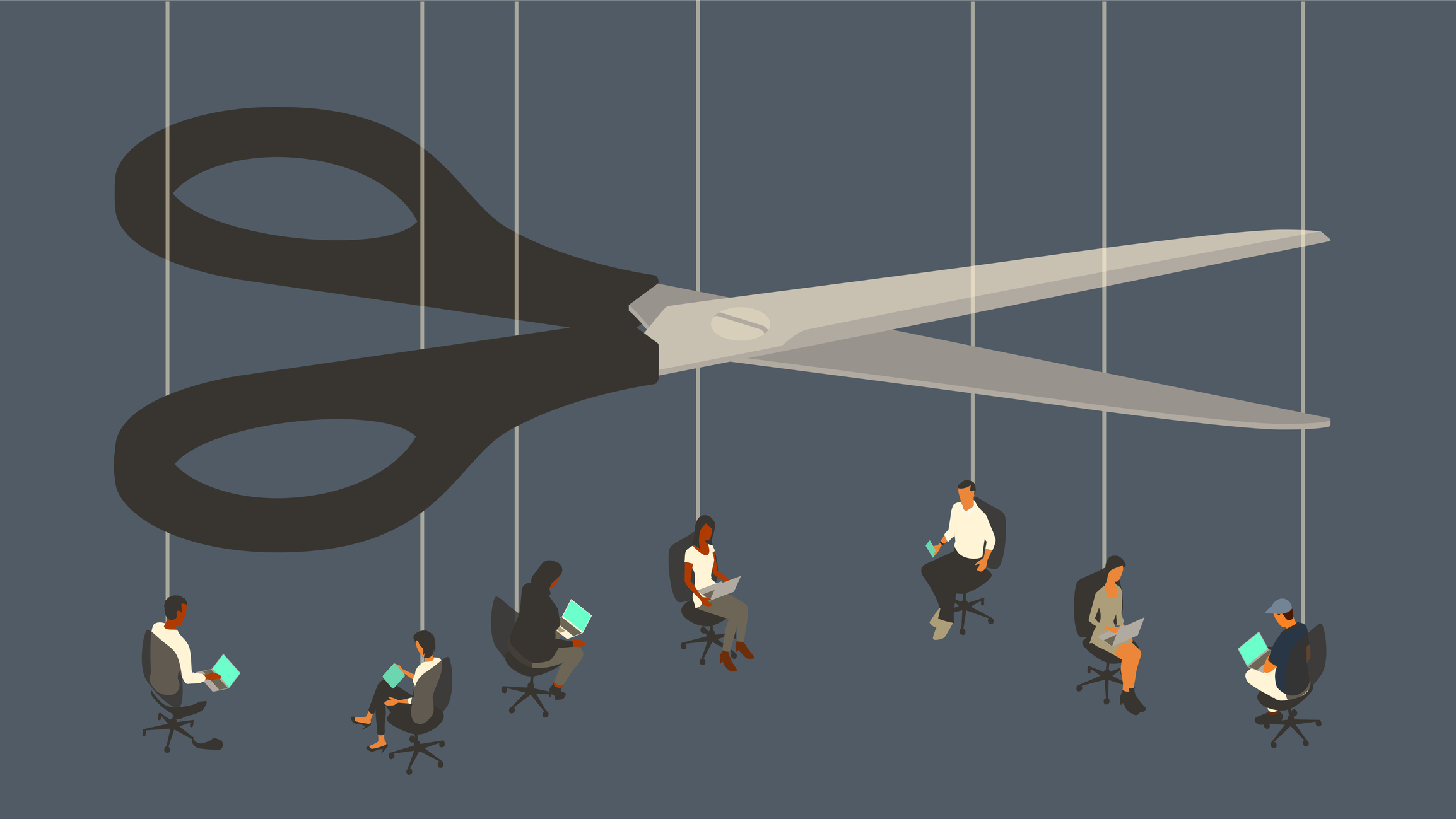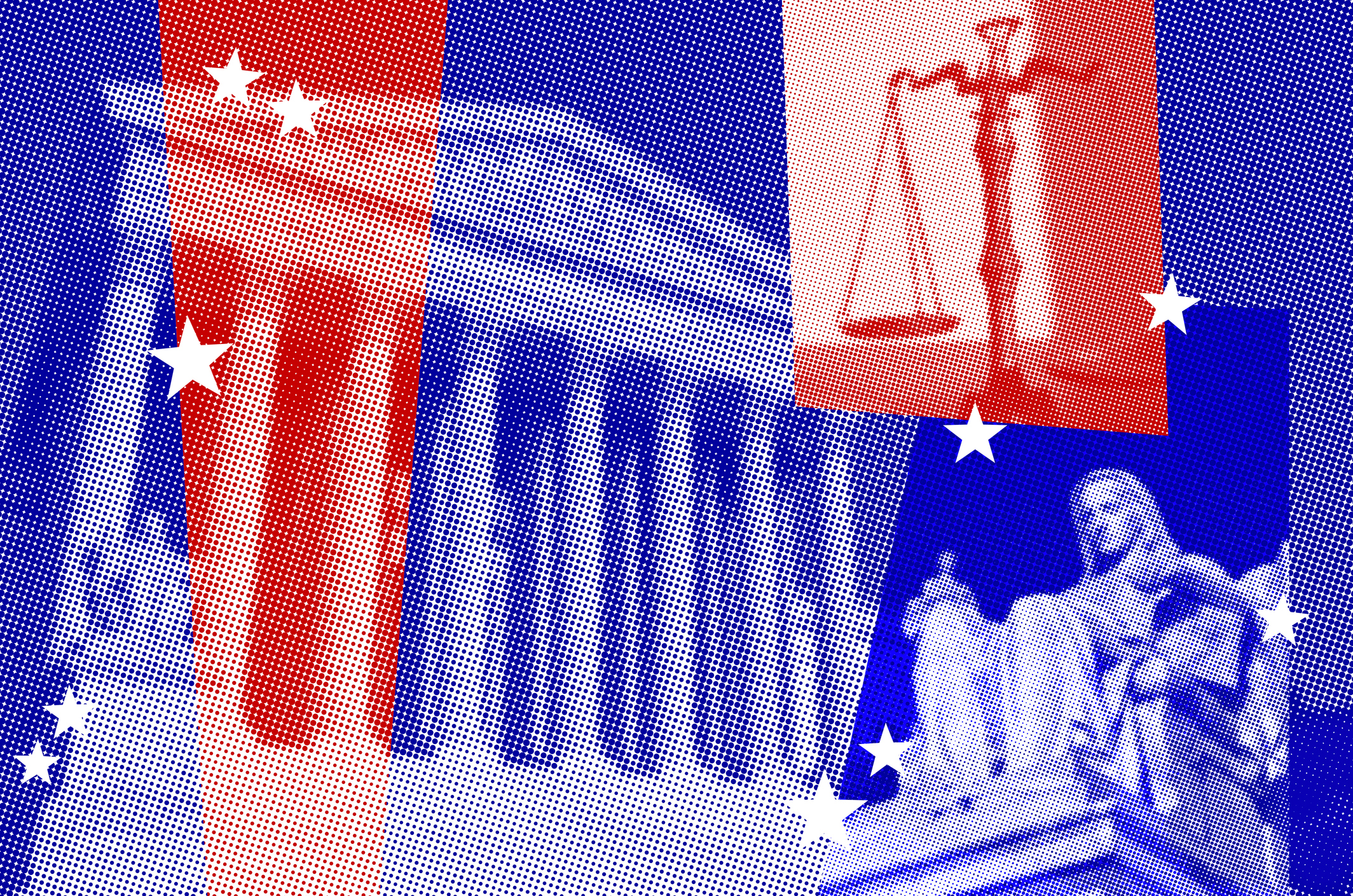Cancel culture and its roots in civil rights law.
Beheading Leviathan

Curbing censorship will require a full-scale assault on the surveillance state.
Two unanticipated events in 2016 completely shocked our ruling class: the election of Trump in the U.S., and the Brexit vote in the U.K. Our elites did not respond by examining the disconnect between their core assumptions and the will of the people. Instead they decided that, sure, democracy is all fine and well, but naturally, democracy must be protected from these unruly people.
After all, the people often don’t know what’s good for them. So those who know better must acquire the capacity to monitor and control the will of the people if we are to “defend democracy”. The means for doing this in the digital age, our ruling class divined, is by monitoring populations’ behaviors and shaping their thinking by controlling the flow of information online. The idea of censorship once again became chic.
Birth of the Censorship Leviathan
In the wake of Trump and Brexit, the Anglosphere Surveillance State, birthed following 9/11, gave birth in turn to its natural offspring, the Censorship Leviathan. There are 434 federal agencies in the Federal Register—most of which the average American cannot name. A little-known agency in our vast administrative state, called CISA—the Cybersecurity Infrastructure Security Agency—was erected in the waning days of the Obama administration in 2016. The following year CISA turned its attention from cyberattacks and foreign threats against our critical infrastructure to threats—whether foreign or domestic—against what Director Jen Easterly called our “cognitive infrastructure.” For the uninitiated, our cognitive infrastructure consists of…the thoughts inside your head. These, naturally, need to be protected from bad ideas, defined as ideas the government or its unelected officials do not like.
CISA quickly became a clearinghouse for what Michael Shellenberger has dubbed the Censorship Industrial Complex: an interlocking network of federal agencies and quasi-private (i.e., mostly government-funded) nonprofits, including some housed at universities like Stanford and the University of Washington, which do the government’s bidding. Starting in 2017, this censorship industry—and it is an industry, complete with training programs and career opportunities for college grads—worked around the clock to flag posts or accounts the government wanted removed. Government officials then forwarded these accounts to social media companies, pressuring the companies by wielding the big stick of government power if they refused to comply.
The Censorship Leviathan grew massively during COVID. Along with my colleagues Jay Bhattacharya of Stanford and Martin Kulldorff of Harvard, I found myself caught in the gears of the government’s censorship machinery for, well, threatening your cognitive infrastructure—specifically by challenging the government’s preferred pandemic policies like lockdowns, school closures, universal masking, and vaccine mandates. The three of us joined a federal lawsuit, Missouri v. Biden, filed by the state attorney generals from Missouri and Louisiana; we were later joined by two other private plaintiffs, health freedom advocate Jill Hines and journalist Jim Hoft.
Shortly after we filed this case, almost a year ago, I wrote:
This evidence [we presented to the court] suggests we are uncovering the most serious, coordinated, and large-scale violation of First Amendment free speech rights by the federal government’s executive branch in U.S. history. Period, full stop. Even wartime propaganda efforts never reached this level of censorship, nor did the government in days past have the power of today’s social media at its disposal.
On July 4th of this year, judge Terry Doughty granted our motion for a preliminary injunction, striking the first major blow against the government’s Censorship Leviathan. (The government appealed the injunction to the 5th Circuit and we are awaiting an expedited hearing.) In the injunction ruling, the judge echoed my claim, writing: “If the allegations made by Plaintiffs are true, the present case arguably involves the most massive attack against free speech in United States’ history.” Perhaps he chose to release the ruling on Independence Day to drive home the point.
New Tentacles
This is clearly a strong claim but, as I have previously argued, an entirely accurate one. Before the digital age, censorship cases typically involved the government suppressing one publisher, one article or book, or one source. In this case, we have a government-funded, government-coordinated “misinformation” industry responsible for censoring hundreds of thousands of Americans on social media tens of millions of times. The breadth and scope of the Censorship Leviathan’s reach is difficult to fathom and would have been impossible to achieve without the previously constructed digital infrastructure of the Surveillance State.
A few days after the injunction ruling, the House Judiciary Committee released a report detailing that the FBI had pressured social media companies to censor Americans on behalf of the Ukrainian intelligence agency (the SBU)—an agency that, according to President Zelensky, had been infiltrated by Russian collaborators. Documents obtained through congressional subpoena revealed that the FBI directed Facebook, Instagram, Google, and YouTube to censor thousands of accounts on behalf of the SBU, which included an American journalist and a U.S. State Department account.
When Meta, which owns Facebook and Instagram, failed to take immediate action on these flagged posts, an FBI agent offered to provide a “legal process” though which the company could act. As the Committee report explained, the FBI agent “suggested concocting a legal justification to support the removal of the flagged accounts if Meta did not find that the posts and comments violated its terms of service.” In response, Meta opened a 24/7 channel to respond to the SBU’s requests.
The congressional committee’s report confirmed previous reporting from investigative journalist Lee Fang. Illia Vitiuk, head of the Department of Cyber Information Security in the Security Service of Ukraine (SBU) told Fang how their authorities defined “disinformation” broadly:
When people ask me, “How do you differentiate whether it is fake or true?” Indeed, it is very difficult in such an information flow. I say, “Everything that is against our country, consider it a fake, even if it’s not.” Right now, for our victory, it is important to have that kind of understanding, not to be fooled.
In short, Americans are now being censored not only by our own government, but by Ukrainian intelligence agents—or possibly by Russian agents posing as Ukrainian intelligence agents. Hollywood screenwriters could make this the plotline of the next Mission Impossible movie, but it might come off as just too implausible and absurd to moviegoers. The House Committee report also noted that the Department of Justice routed censorship requests from other foreign governments, including European countries and the European Union.
The Surveillance State
During COVID, the federal government saw fit not only to censor your voice online but to monitor your private behavior for compliance with government directives.
In May of 2022 we learned that during the previous two years, the CDC tracked millions of phones to see if Americans followed COVID lockdown orders. According to documents obtained by Motherboard, the CDC used phone location data to monitor schools and churches and planned to also use the data for at least twenty-one applications beyond COVID. These include, among other applications, monitoring curfews, neighbor-to-neighbor visits, visits to churches and other places of worship, school visits, visits to parks, gyms, or weight management businesses, as well as exposure to certain building types, urban areas, and violence.
Although the data purchased by the CDC was aggregated to show trends, research has demonstrated that unmasking specific users from these aggregated mobility datasets is quite feasible. One research team studied 15 months of human mobility data for one and a half million individuals and published their results in Nature: “In a dataset where the location of an individual is specified hourly and with a spatial resolution equal to that given by the [mobile phone] carrier’s antennas, four spatio-temporal [data] points are enough to uniquely identify 95% of the individuals.”
Evidence also emerged recently that the CIA has been using unauthorized digital surveillance to spy on Americans. Even the ACLU expressed alarm when newly declassified documents revealed that the CIA has been secretly conducting massive surveillance programs that capture Americans’ private information. As they noted: “This surveillance is done without any court approval, and with few, if any, safeguards imposed by Congress to protect our civil liberties.” By consequence, “These reports raise serious questions about what information of ours the CIA is vacuuming up in bulk and how the agency exploits that information to spy on Americans. This invasion of our privacy must stop.”
U.S. Senators Ron Wyden of Oregon, and Martin Heinrich of New Mexico, both Democrats and members of the Senate Intelligence Committee, called for the declassification and investigation of relevant CIA documents. In a letter of April 13, 2021, which they made public, the two senators expressed concern that the CIA program was “entirely outside the statutory framework that Congress and the public believe govern this collection [of data], and without any of the judicial, congressional or even executive branch oversight that comes from [Foreign Intelligence Surveillance Act—FISA] collection.” Despite Congress’s clear intent, with the support of the American people, to limit warrantless collection of Americans’ private records, the senators warn, “these documents reveal serious problems associated with warrantless backdoor searches of Americans, the same issue that has generated bipartisan concern in the FISA context.”
There is a broader legal context for these extra-legal developments of mass surveillance of civilian populations. Since the war on terror began, Western nations have legislatively scaled up their increasingly intrusive networks of mass surveillance—often referred to with the euphemism “bulk collection.” The last decade has seen such measures passed in the U.K., France, Australia, India, Sweden, and other countries—not to mention the AI enabled facial- and gate-recognition surveillance in China, technology that Xi is already exporting to eager rogue regimes around the globe.
The Beast and Its Offspring
Political theorist Eric Voegelin, who studied the totalitarian regimes of the 20th Century, noted that the common feature of all such regimes was not concentration camps, or mass surveillance, or secret police—as horrifying as all these things are. The common feature of all totalitarian systems is the prohibition of questions. These regimes begin by monopolizing what counts as rationality—what counts as acceptable public knowledge—and then place any dissidents outside the pale of rational conversation. Surveillance of dissident thoughts and behaviors and censorship of dissenting opinions then expand together.
In Milton’s Paradise Lost, when Satan reaches the gates of hell on his way to tempt our first parents in Eden, he meets two grotesque monsters guarding the exit. The first monster, Sin, explains that he sprung from Satan’s own head; this monster subsequently delivered the second specter, Death. Just as the former by necessity birthed the latter, so also the post-9/11 Surveillance State was destined to eventually birth the Censorship Leviathan. These two beasts now guard the gates of permissible public discourse. The seven-year-old Censorship Leviathan cannot be slain unless we also reign in the 20-year-old of the Surveillance State, which gave birth to it.
My job as a physician specializing in psychiatry is to help individuals regain control over their own behaviors and thoughts—to recover their interior freedom when it is impaired by disease, addiction, or neurosis. As someone who specializes in treating mental disorders, I can attest: when the government takes upon itself the task of monitoring and shaping your behavior (through surveillance) and your thoughts (through censorship), we have a perfectly apt name for this.
It’s called mind control.
The American Mind presents a range of perspectives. Views are writers’ own and do not necessarily represent those of The Claremont Institute.
The American Mind is a publication of the Claremont Institute, a non-profit 501(c)(3) organization, dedicated to restoring the principles of the American Founding to their rightful, preeminent authority in our national life. Interested in supporting our work? Gifts to the Claremont Institute are tax-deductible.
The Supreme Court succumbs to a fatal error in reasoning.
Are we ready to face what colorblindness would really look like?



